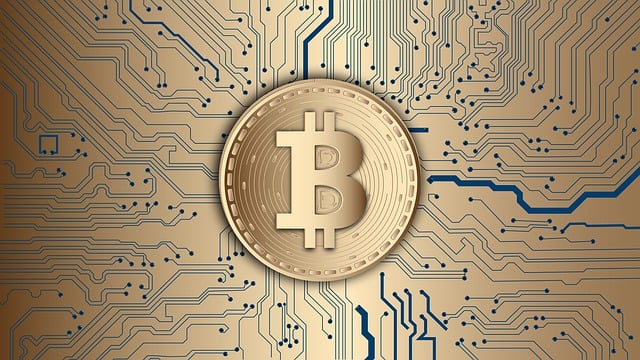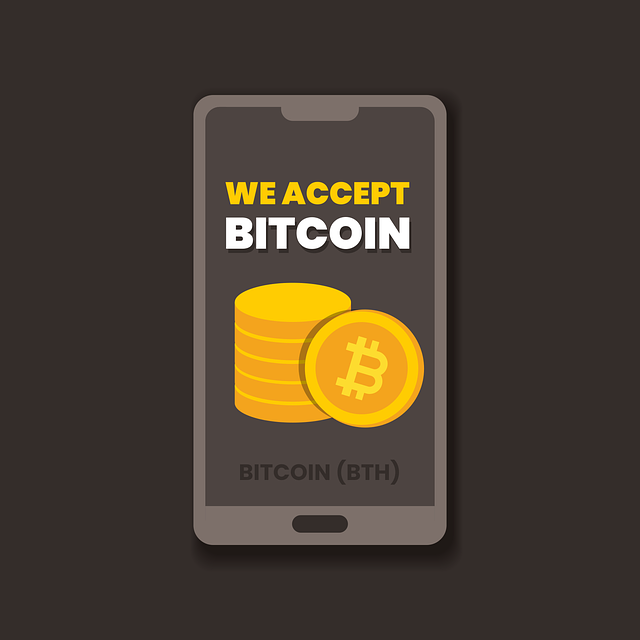Geopolitical tensions significantly influence the cryptocurrency market's stability and adoption. During political unrest or economic rivalries, regulatory policies can change abruptly, leading to increased uncertainty and volatility. Cryptocurrencies like Bitcoin gain traction as hedges against inflation and government interference during global crises, demonstrating their resilience. Rising worldwide tensions affect investor sentiment and drive interest in cryptocurrencies as a hedge against economic uncertainty. To mitigate risks, investors should diversify across geographic borders and asset classes, stay informed about international relations, and make timely decisions, fostering resilience in the face of changing geopolitics. The geopolitical tensions impact on crypto is substantial, influencing investment strategies and market behavior.
“Geopolitical tensions have increasingly become a defining factor in shaping the cryptocurrency market’s volatility. This article delves into the intricate relationship between these digital assets and global political dynamics, exploring both historical examples and recent events. We analyze how geopolitical tensions impact crypto’s vulnerability, with a focus on understanding risks and potential solutions for investors. By examining past conflicts, we gain insights into mitigating strategies to ensure resilience in an ever-changing political landscape.”
- Understanding Crypto's Vulnerabilities to Geopolitical Tensions
- Historical Examples: How Past Conflicts Shaped Cryptocurrency Markets
- The Current Landscape: Recent Geopolitical Events and Their Crypto Implications
- Exploring Solutions: Mitigating Risks and Ensuring Resilience in a Political World
Understanding Crypto's Vulnerabilities to Geopolitical Tensions

The world of cryptocurrency, while innovative and decentralized, is not immune to geopolitical tensions that can significantly impact its stability and adoption. Geopolitical factors play a crucial role in shaping the crypto landscape, as they influence regulatory environments and market sentiment globally. When geopolitical tensions rise, it often leads to increased uncertainty and volatility in the cryptocurrency markets. Investors may become hesitant to embrace digital assets as a long-term investment due to the unpredictable nature of international relations.
Countries’ policies towards cryptocurrencies can change abruptly during times of political unrest or economic rivalries, causing market disruptions. For instance, heightened geopolitical tensions might prompt governments to tighten regulations or even ban certain cryptocurrencies, affecting their liquidity and price. As a result, crypto’s inherent volatility is exacerbated, creating a challenging environment for both users and developers navigating these uncharted waters.
Historical Examples: How Past Conflicts Shaped Cryptocurrency Markets

Historically, geopolitical tensions have significantly influenced cryptocurrency markets, providing a unique perspective on how past conflicts can shape today’s digital financial landscapes. During times of international strife, traditional financial systems often become vulnerable, prompting investors to seek alternative avenues for safety and growth. Cryptocurrencies, with their decentralized nature, have emerged as a viable option in such scenarios. For instance, during the 2008 global financial crisis, many turned to Bitcoin as a hedge against inflation and government interference in traditional banking.
Similarly, long-standing geopolitical tensions between nations have created an environment where cryptocurrency adoption has flourished. The US-China trade war, for example, sparked interest in decentralized currencies due to concerns over economic sanctions and currency devaluation. These historical examples highlight the inherent resilience of cryptocurrencies and their potential to offer a safe haven during uncertain political climates. As geopolitical tensions impact on crypto markets, investors continue to recognize the benefits of diversity and decentralization in their financial portfolios.
The Current Landscape: Recent Geopolitical Events and Their Crypto Implications

In recent years, the cryptocurrency market has become increasingly intertwined with global geopolitical events, highlighting the significant impact of political tensions on digital assets. With rising geopolitical conflicts worldwide, investors and analysts alike are closely watching how these events influence traditional financial systems and, consequently, the crypto space. The volatility in global markets caused by trade wars, sanctions, and regional disputes directly affects investor sentiment towards cryptocurrencies.
Geopolitical tensions often drive a shift towards digital currencies as a hedge against economic uncertainty. For instance, countries imposing sanctions on each other may turn to cryptocurrency transactions for unfettered financial exchange. Additionally, the decentralized nature of blockchain technology can offer solutions in regions with unstable or controlled financial systems. As such, cryptocurrencies have become an intriguing alternative asset class, especially during times of geopolitical turmoil.
Exploring Solutions: Mitigating Risks and Ensuring Resilience in a Political World

In today’s interconnected world, geopolitics plays a significant role in shaping financial landscapes, including the cryptocurrency market. As geopolitical tensions escalate, investors and enthusiasts must explore solutions to mitigate risks and ensure resilience. The volatile nature of global politics can severely impact crypto assets due to regulatory changes, trade restrictions, or even outright bans, as seen in various regions around the world. These challenges necessitate a proactive approach to safeguarding digital portfolios.
One strategy involves diversifying investments across different geographic borders and asset classes. By spreading risk geographically, crypto holders can reduce exposure to any single jurisdiction’s political instability. Additionally, staying informed about international relations and economic policies is crucial. Following global news and analyzing potential implications on the cryptocurrency market can help investors make timely decisions. This proactive approach fosters resilience in an ever-changing geopolitical environment, enabling individuals to navigate uncertainties with confidence.
Geopolitical tensions have a significant impact on cryptocurrency markets, as evidenced by historical examples and recent events. Understanding these vulnerabilities is crucial for investors and developers alike to mitigate risks and ensure resilience in a volatile political landscape. By exploring effective solutions, the crypto ecosystem can foster adaptability and maintain its integrity amidst global geopolitical challenges.
